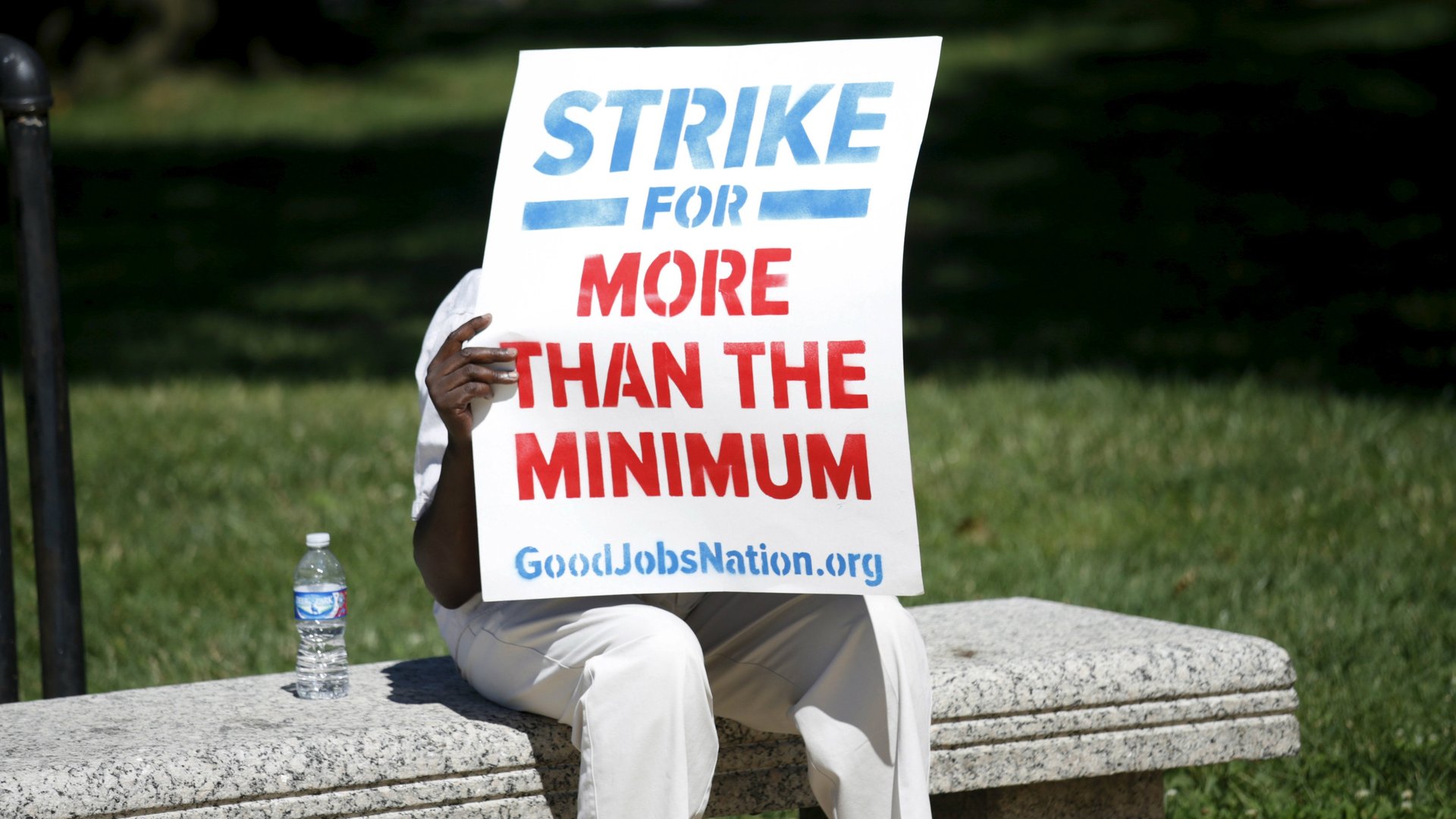New research reveals one of the bad things about a higher minimum wage
Ever since there have been economists, there have been debates between economists about the impact of a minimum wage (pdf). Few research topics feature so many twists and turns. Many economists once presumed that higher wage floors would decrease employment; after all, if you make something more expensive, people want less of it. But then evidence showed that, at least in the short run, a small increase in the minimum wage didn’t harm employment very much. It sounded like a win-win situation, and policymakers felt confident enough to introduce large increases in the minimum wage—with mixed results.


Ever since there have been economists, there have been debates between economists about the impact of a minimum wage (pdf). Few research topics feature so many twists and turns. Many economists once presumed that higher wage floors would decrease employment; after all, if you make something more expensive, people want less of it. But then evidence showed that, at least in the short run, a small increase in the minimum wage didn’t harm employment very much. It sounded like a win-win situation, and policymakers felt confident enough to introduce large increases in the minimum wage—with mixed results.
A new paper challenges the evidence that minimum-wage hikes are harmless. But first, the good news. The study, which looked at data in the US from 2011 to 2016, found that a higher minimum wage raised earnings for a range of workers in the US, and not just those earning the legal minimum. That is, if employers had to increase the pay of a $10-an-hour worker, they also increased the pay of a $15-an-hour worker. The study also found little evidence that higher minimum wages harmed employment, except for some young adults.
And now, the bad news. The economists estimate that increasing the minimum wage by $1 reduced the probability of employer-provided health insurance by 1.4 to 2.3 percentage points. Many low-wage workers lost coverage following the minimum-wage increase. There were also negative spillovers, with hikes in the minimum wage reducing coverage for people who were low paid, but still earned more than the minimum wage.
The study speculates that paying for higher labor costs needed to come from somewhere. “The impact of the minimum wage effects can be non-linear,” says Texas A&M professor Jon Meer, one of the authors. “It impacts other forms of compensation like benefits and possibly other things that aren’t picked up in the data, like flexibility and free-parking.”
It is also possible that the Affordable Care Act, which went into effect shortly before the period studied, meant people had different healthcare alternatives, so employers felt less inclined to offer health insurance. Another interesting result from the study was that workers who lost employer-sponsored coverage did not buy it elsewhere—even if they were entitled to subsidies. They just went without coverage.
Overall, the study estimates that the increase in pay was not enough to make up for the value of lost healthcare cover, leaving workers worse off.